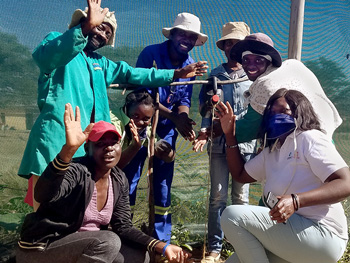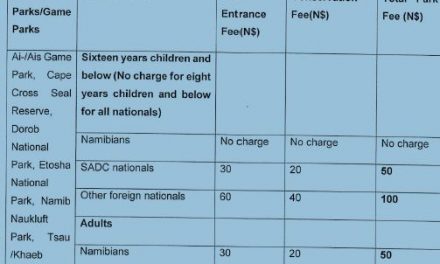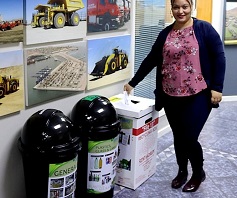
Tippy taps assist informal communities with hygiene maintenance

An initiative in the capital has managed to build 2298 tippy taps in Windhoek’s informal settlements in only three weeks, the initiators said recently.
The initiative is part of the country’s Living Permaculture project which supports the innovative design and develops solutions for everyday living in informal settlements. The 18-month project innovates and designs solutions together with the shack dwellers in the country.
Project Coordinator, Ina Wilkie said that washing hands with soap has been the most important advice to stay safe from COVID19 and a tippy tap is, therefore, a good solution for living situations without running water.
“For a tippy tap, a water container hangs on a frame and is connected with a string to a pedal on the ground. When pushing the pedal with your foot, the container tips and water runs. You can now wash your hands without touching a tap,” she added.
According to Wilkie, 28 producers who all live in the informal settlements built the handwashing devices in their neighborhoods and mainly recycled materials were used.
“Most of the producers have been working with the project for a while and have had the chance to gain experience in designing and building prototypes for solutions like household greywater filters or solar ovens,” she added.
Wilkie said project champions have now engaged in the tippy tap challenge and currently training more tippy tap producers and building as many as possible in Windhoek’s informal settlements.












































